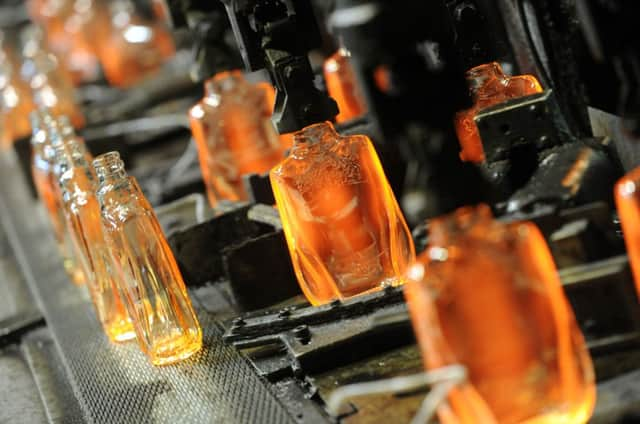Cuts to tax-free annual investment allowance to be reviewed


Earlier this week, industry groups urged George Osborne to maintain the annual investment allowance at its current level of £500,000.
The rate was set to fall sharply to just £25,000 in January 2016, marking the fifth change since 2008.
Advertisement
Hide AdAdvertisement
Hide AdAt his final Budget before next month’s General Election, Mr Osborne committed to reviewing the planned reduction in annual investment allowance.
The Chancellor said discussions with business have convinced him the £25,000 - just five per cent of the current allowance - would not be “remotely acceptable”.
The allowance will therefore be set at a “much more generous” rate, he said.
However, Mr Osborne stopped short of meeting lobby group’s demands of maintaining the tax relief at its current rate, instead saying the issue will be addressed at this year’s Autumn Statement.
Advertisement
Hide AdAdvertisement
Hide AdIn his Budget statement, the Chancellor said: “The boost I provided to the annual investment allowance comes to an end at the end of the year.
“A better time to address this is in the Autumn Statement.
“However, I am clear from my conversations with business groups that a reduction to £25,000 would not be remotely acceptable – and so it will be set at a much more generous rate.”
The annual investment allowance, which gives companies 100 per cent tax relief on plant and machinery spending, was to fall from its current level of £500,000 to £25,000 from January 2016.
It was initially raised from £50,000 to £100,000 in April 2010, before dropping down to £25,000 in April 2012.
Advertisement
Hide AdAdvertisement
Hide AdIn January 2013, the threshold climbed to £250,000, before doubling to its current level in April 2014.
Earlier this week, the Institute of Directors (IoD) called on Mr Osborne to give businesses certainty by freezing the allowance at its current level, providing “stability and predictability” for businesses.
Following the Budget, IoD head of taxation Stephen Herring said the organisation was “disappointed” with Mr Osborne’s statements.
He said: “We were disappointed that the Chancellor did not announce that the annual investment allowance would continue at a level no less than its existing level of £500,000 for the next Parliament.
Advertisement
Hide AdAdvertisement
Hide Ad“This would have given businesses the certainty needed to plan their investments in plant and machinery.”
The West and North Yorkshire Chamber of Commerce also expressed disappointment by the lack of clarity over the allowance.
It had called for a permanent £500,000 allowance and estimated average cost to the Exchequer to be £963m a year.
Mike Cartwright, policy executive at the Chamber said: “We’re still hopeful that a commitment to the annual investment allowance will be picked up later in the year.
Advertisement
Hide AdAdvertisement
Hide Ad“It would give businesses greater certainty with regards to investment.”
The CBI said business investment was a “crucial driver for growth”. John Cridland, CBI director-general, reiterated the industry group’s call for a softening of the planned reduction.
He said: “We want it to be made permanent in the Autumn Statement at £250,000 - this will fire the UK’s economic kiln by spurring smaller firms to invest in plant and machinery.”
According to figures from the CBI, its proposals would cost £670m in 2016/17 before rising to £754m by 2019/20.
Advertisement
Hide AdAdvertisement
Hide AdThis could be funded through a 0.1 per cent cut to the average annual level of government current spending or a reallocation of departmental underspend, it said.
The Federation of Small Businesses (FSB) welcomed the announcement that a reduction to £25,000 was under review. Cancelling the planned change would “provide the certainty needed for businesses to invest”, it said.
John Allan, national chairman of FSB, said businesses must be given certainty on the relief.
“The Chancellor has made a clear commitment to a keeping the allowance at a high level.
“We now hold the next Government to making this move permanent,” he added.